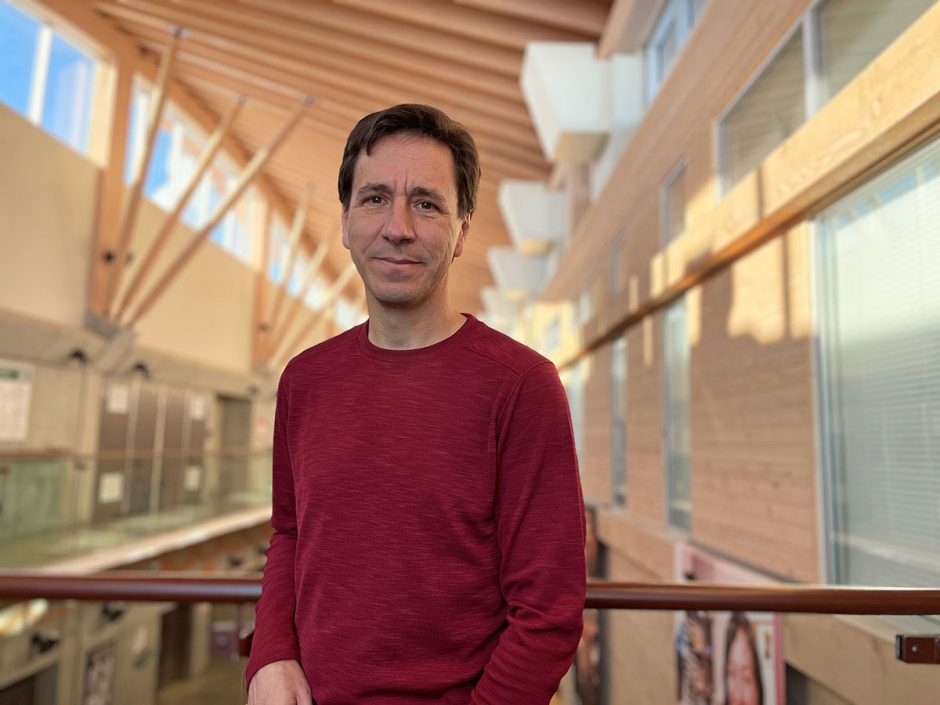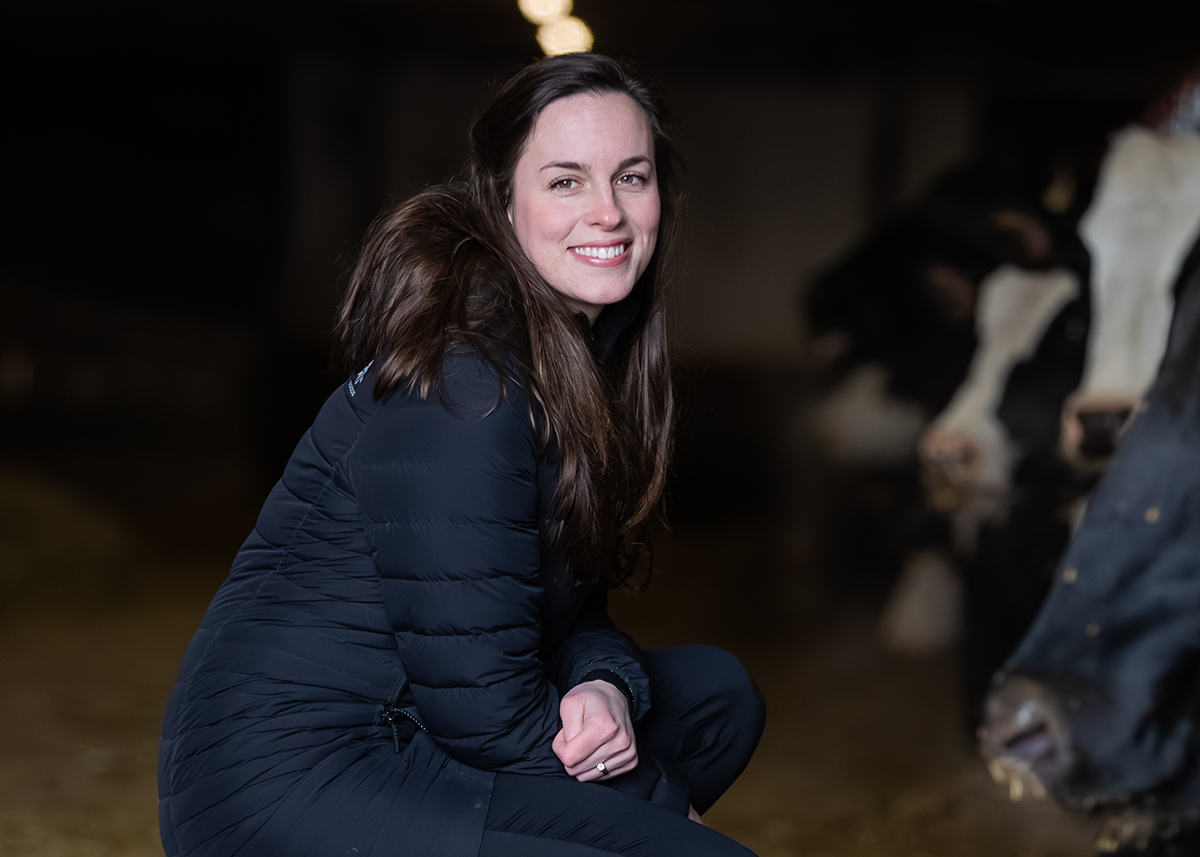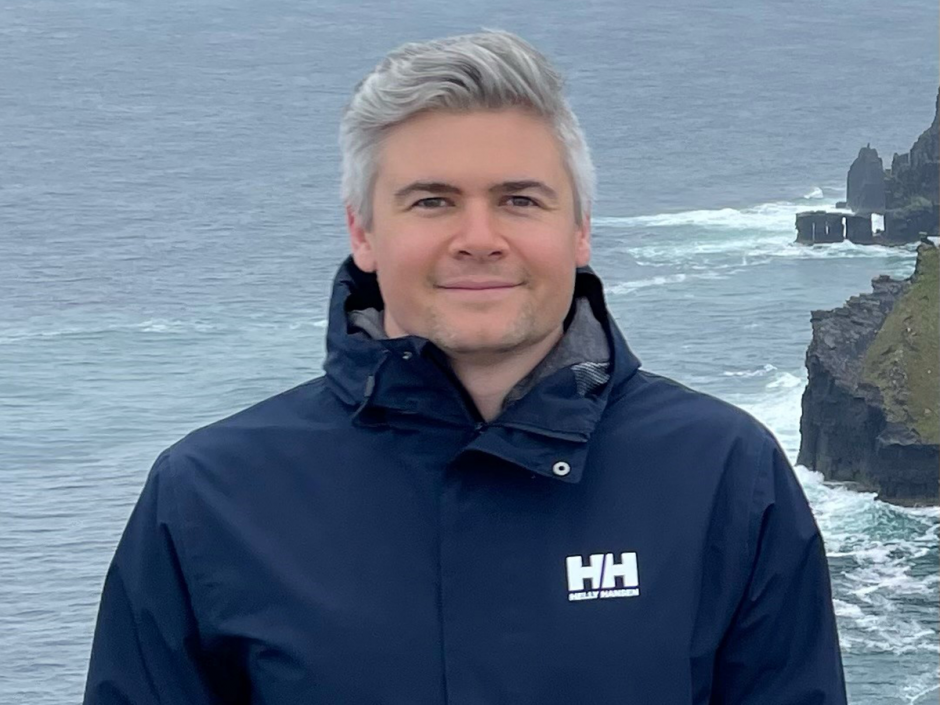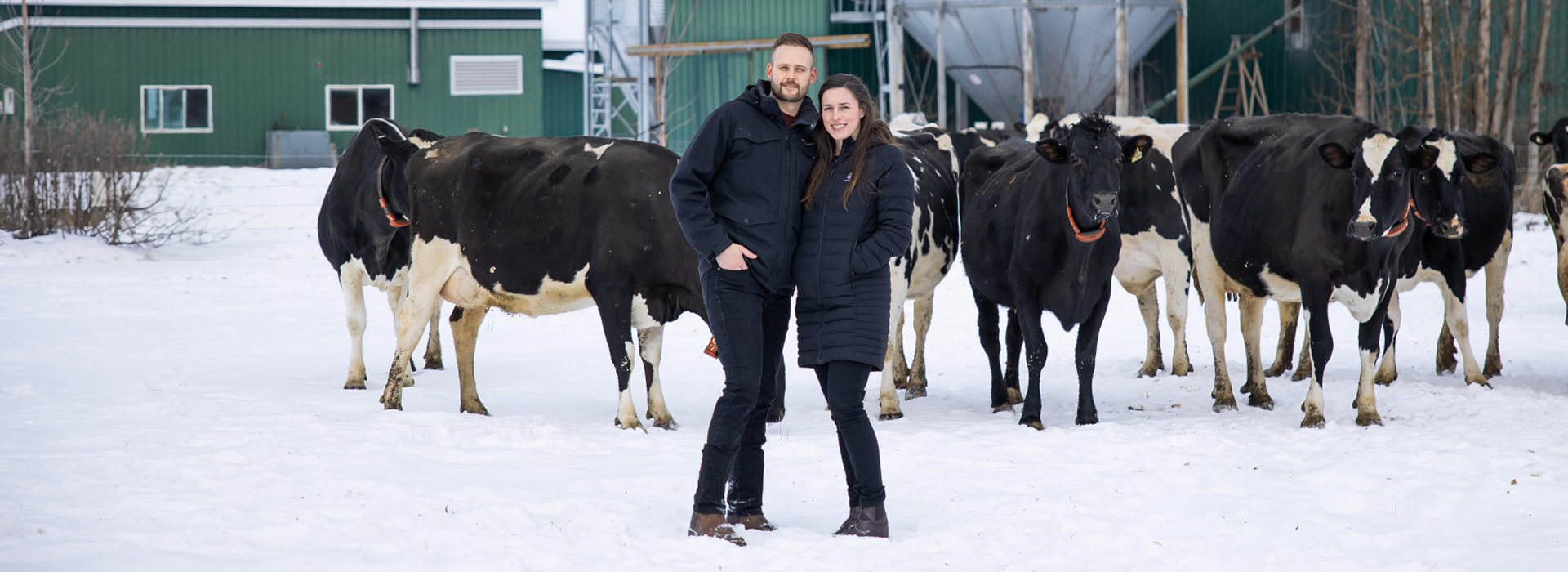
UBC Northern Medical Program graduate Dr. Jenn Vandenberg and her husband, Dan.
UBC MD grad champions new family medicine residency program, expanding care to rural communities
The Rural Immersion program launches more training opportunities for family medicine resident doctors across northern B.C.
It was a pivotal moment in James Card’s life — one that he reflects on often. After a challenging day of tree planting near MacKenzie, in northern British Columbia (B.C.), he piled into his company truck and flicked on the radio. The news segment was covering a health care rally in nearby Prince George, where thousands of people were protesting the lack of doctors in the North.
Card found himself listening intently. He loved the North, but he needed a change. He wanted to do something different, something that would give him the meaning and stability he craved.
As he drove through the rugged and beautiful landscape, listening to the broadcast, he decided he would become a doctor.
In 2004, UBC began to expand and distribute its MD undergraduate program with support from the Government of B.C. and its academic partners. The expansion stretched across the province, reaching regional, rural, remote and Indigenous communities to help meet the growing healthcare needs of British Columbians.
When UBC opened the doors to the new Northern Medical Program (NMP), which is delivered in partnership with the University of Northern British Columbia in Prince George, Card applied and was accepted.
His student number was 0001.

Little did he know that 20 years later, he would be training the next generation of family doctors in the North as the Site Director for UBC’s Northern and Rural Family Practice Residency program.
“UBC has a fantastic rural family medicine residency program where resident doctors are based in larger tertiary hospitals and also experience rural rotations in a number of smaller communities,” says Dr. Card, who is also a clinical faculty member with the NMP.
Starting this July, medical graduates will have the opportunity to further specialize in rural family medicine through UBC’s new and innovative Rural Immersion program — the first of its kind in B.C. and one of the very few offered at medical schools across Canada.
“The new Rural Immersion program takes it a step further by fully immersing residents in a single rural community for the entire two-year program,” he says. “This is important because we know that where resident doctors train, they are more likely to put down roots and stay on to practice in these same communities.”
Since 2004, approximately 82 per cent of resident doctors who did family medicine training at UBC are now practicing in communities across the province.
And, if resident doctors are living and training in a single community, they are able to form deeper relationships with their clinical preceptors, other allied health professionals, their patients and the communities they are serving, says Dr. Card.
Most importantly, the program provides greater equity and access to opportunities for resident doctors, like Dr. Jenn Vandenberg, to learn and train in their home communities.

A new program for the North
Before the sun rises, Dr. Vandenberg is up and getting ready for her hospital rotations. She’s careful not to wake her two young children before heading out to the hospital in Smithers where she’s completing her final year of rural family medicine training.
A medical graduate from the NMP, Dr. Vandenberg is one of two second-year UBC resident doctors currently piloting the Rural Immersion program.
She describes the opportunity to train in Smithers as serendipitous, given that both she and her husband were born and raised in the community, and are the owners and operators of a local dairy farm.
“I always intended to come back to practice in Smithers,” she says. “We live here and our families live here, so it made perfect sense for me to train here.”
As one of the only resident doctors in town, she is gaining exposure to a diverse spectrum of clinical training including providing care for pregnant women, young children, older adults with complex needs, emergency care and surgical assisting.
By the Numbers
4,000+
UBC clinical faculty members across the province are training the next generation of family doctors
400
UBC family medicine resident doctors are training in regional, rural, remote and Indigenous communities across B.C.
204
First-year UBC family medicine residency positions
23
UBC family medicine residency training sites are located in communities across the province including in Cowichan, Fort St. John, Ladysmith and more.
She also trains alongside the many specialists who visit the community.
“A big part of rural medicine is team-based care,” she says. “Everyone knows me, and they’re invested in my training, so they’re happy to call me whenever there is a case that is important to my learning.”
Occasionally, she travels to Prince George to gain further exposure in specific disciplines that are not as readily abundant in Smithers.
“A key part of the program is supporting resident doctors with additional training,” she explains. “The learning is exceptional in rural communities and the program creates additional space so that you get the exposure you need to the more specialized disciplines.”
And it’s this support from dedicated UBC family physician preceptors, allied healthcare professionals and the community that sets up residents for success, Dr. Vandenberg says.
“People in the community have been really positive. They’re happy that I’m staying and the local preceptors are doing a remarkable job in training me to serve my community in a way that’s needed.”

For Dr. Bron Finkelstein, a UBC clinical faculty member in Chetwynd and alumnus of UBC’s Prince George Family Medicine Residency program, the learning is reciprocal.
“Medicine is a lifelong career in learning so it’s important to pass our knowledge on to our future colleagues,” he explains. “Teaching also makes you a better health care provider because residents bring a ton of expertise and it helps keep you up-to-date on best practices.”
For communities, the impact of the Rural Immersion program will be profound as it will enhance the delivery of patient care and most importantly, inspire more doctors to stay, says Dr. Finkelstein.
“For residents who want to practice rural medicine in their home communities, what better place to learn about your future practice setting than in the community itself?”
Expanding the healthcare community through innovative training programs
Back in Prince George, Dr. Card is busy preparing to welcome the first cohort of UBC Rural Immersion resident doctors. They will begin their training this summer in communities such as Mackenzie, Quesnel, Burns Lake, Vanderhoof, Valemount, McBride and Chetwynd.
He’s also speaking with other medical graduates who have reached out to learn more about the program.
Over the past year, he has encountered tremendous enthusiasm about the new program and hopes to place many more resident doctors in communities in the future.
“This is one way that we can revitalize rural family practice in the north and transform health for everyone. By providing learners with unparalleled opportunities to learn and train in new ways while supporting them every step of the way.”
— Dr. James Card
The interest, he says, is largely from medical students and resident doctors who are keen on pursuing rural family medicine through a new program that emphasizes both teaching excellence in medicine and delivering outstanding care within rural communities.
“When the clock strikes midnight on June 30th and the learners’ transition from being residents to attending physicians in these communities, it’s important that the process is seamless,” he says. “Knowing how to work as part of a team with the resources available to you is just as important as knowing medicine in rural practice.”
As more resident doctors choose to stay on and practice in the communities where they train, B.C.’s rural healthcare network will continue to expand, allowing physicians to provide excellent and tailored care that’s specific to the unique needs of northern patients and their families, he says.
“This is one way that we can revitalize rural family practice in the north and transform health for everyone,” he says. “By providing learners with unparalleled opportunities to learn and train in new ways while supporting them every step of the way.”
Published: March 18, 2024
